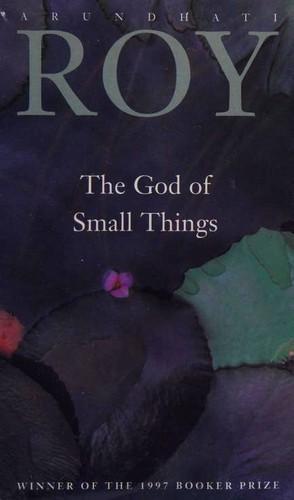Acton reviewed The God of Small Things by Arundhati Roy
Review of 'The God of Small Things' on 'Goodreads'
5 stars
A pair of actors trapped in a recondite play with no hint of plot or narrative. Stumbling through their parts, nursing someone else's sorrow. Grieving someone else's grief.
Unable, somehow, to change plays. Or purchase, for a fee, some cheap brand of exorcism from a counselor with a fancy degree, who would sit them down and say, in one of many ways: "You're not the Sinners. You're the Sinned Against. You were only children. You had no control. You are the victims, not the perpetrators."
Rahel and Esthappen are siblings, Rahel a little girl, Estha her brother. They are bright, imaginative children. They are two-egg twins, but sometimes they are Mrs. Eapen and Mrs. Rajagopalan, or Ambassador E. Pelvis (with a puff) and Ambassador S. Insect. A boy in his beige and pointy shoes and his Elvis puff, a little fairy in her airport frock with matching bloomers. A puff and a fountain in a love-in-Tokyo (which I believe is a long name for those little black rubber bands with two beads on the end that lots of us used to make pony tails, back in the 70's)(But I digress).
There are two very different tragedies in this story that come together and ruin the happy lives of Rahel, Esthappen, and Ammu, their mother, and a special man named Velutha. The adult world, with its infinite bigotry and violence, blames and punishes them all. Ammu, a divorcee who has returned with her children to her family's village, is already not very welcome, but then she has a secret affair with Velutha, who is from a lower caste. They break The Love Laws, which define who is to be loved, how, and how much, and they pay the highest price. Rahel and Estha are not spared the trauma, especially Estha; in another stroke of random unfairness, he experiences and witnesses more that Rahel does, and is made to feel very much to blame.
Arundhati Roy tells this story in a way that reminds me of water circling round a drain before rushing downward; the narrative moves back and forth in time and tells everyone's stories before the reader is given the details of the inevitable ending. It did take me some time to really get involved with the story, since the names, family relationships, and time-shifting style took some getting used to. In the end, though, I was awed by the writing and the story, and would highly recommend it to anyone.
The God of Small Things, By Arundhati Roy, copyright 1997, HarperCollins. 321 pgs. Winner of The Booker Prize, 1997
lifted from page 182.

